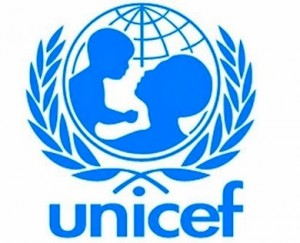UNICEF donates equipment worth $100,000 to support children with disabilities
 Thousands of children with mild to moderate disabilities in Ghana will now have greater access to mainstream schools, thanks to a recently established Inclusive Education Policy (IEP).
Thousands of children with mild to moderate disabilities in Ghana will now have greater access to mainstream schools, thanks to a recently established Inclusive Education Policy (IEP).
The United Nations Children’s Fund (UNICEF), with support from the United States Agency for International Development (USAID), is working with the Ghanaian Government through the Ghana Education Service to support 20 districts in the implementation of Inclusive Education, a press release has said.
“It is encouraging to see that all children especially those with special needs now have a chance to learn in an inclusive environment,” Susan Namondo Ngongi, the UNICEF representative in Ghana was quoted as saying in the release.
UNICEF and USAID jointly handed over essential assistive devices and basic screening materials procured by UNICEF worth $100,000 to the Government of Ghana for use in assessment centres in all 10 regions across the country, it noted.
According to the release, the equipment, which includes assistive devices (child-sized wheelchairs, crutches, complete spectacles, and hearing aids) and basic screening materials (including snellen charts, tossing rings, tennis balls, drums), will provide the much needed support for the community, especially pupils and students with special educational needs.
“Inclusive education is a particularly strong priority for USAID. I have seen first-hand the power of these efforts to not only open up opportunities for children with special needs, but to help all children receive a better education,” USAID/Ghana Mission Director, Andy Karas was quoted as saying in the release.
The event took place at the flagship assessment centre in the Central Region, located within the Cape Coast School for the Deaf/Blind, it said.
The release noted that despite the commitment made by the Government in its Inclusive Education policy, children with disabilities are still at risk of stigma, misunderstanding, and discrimination particularly within their local communities.
Such discrimination hinders a child’s chance to receive a quality education. UNICEF will therefore continue to support the Ghanaian Government, through the Ministry of Education/Ghana Education Service and Civil Society Organizations to create awareness of the IE Policy and its implementation at both national and sub-national levels, it also said.
By Pamela Ofori-Boateng
Copyright ©2017 by Creative Imaginations Publicity
All rights reserved. This news item or any portion thereof may not be reproduced or used in any manner whatsoever without the express written permission of the publisher except for the use of brief quotations in reviews.
